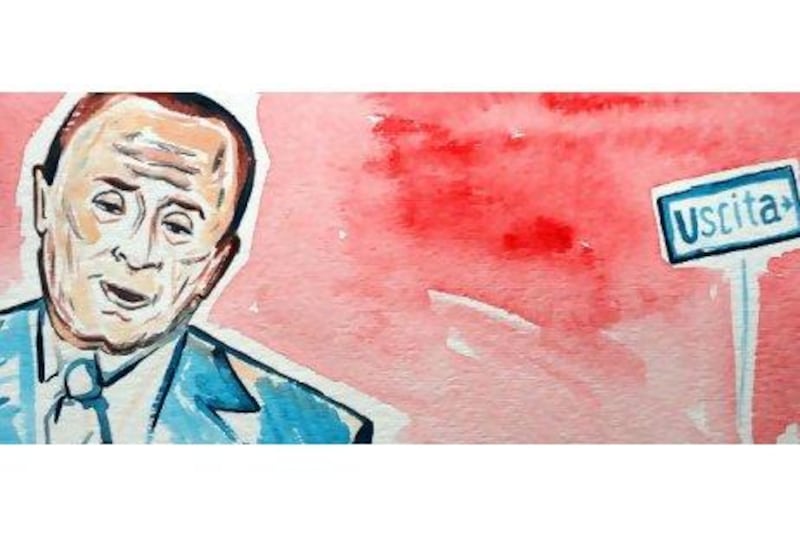Beleaguered, embattled or troubled? The name of Silvio Berlusconi, the Italian prime minister, has hung around with these three words for several months now - to the point where they are almost inseparable.
Berlusconi was swept back into power three years ago, for his third term in office, promising a populist package of tax cuts and much-needed assistance for Italy's flagging economy. He has been unable to achieve either objective in the intervening period.
The International Monetary Fund currently estimates that the Italian economy will grow by just one per cent this year and by 1.3 per cent in 2012. These are flat figures although, it should be said, not at all exceptional in the context of the gloom that hangs over large parts of the eurozone. The Spanish economy, for instance, is expected to fare worse over the same period, while Greece and Portugal are even closer still to meltdown.
Berlusconi's promised tax cuts have also hit the skids, with a lack of liquidity and fears of a debt crisis causing international credit agencies to downgrade Italy's financial rating.
However, such is the fog of scandal that surrounds any consideration of his political career that few will now judge the beleaguered (there it is again) Italian PM on either his patchy economic record or even the power he once held at the ballot box.
As recently as March 2010, Berlusconi's coalition government was making significant gains in regional elections. That victory, little over a year ago, marked the high tide for his administration. The coalition would split less than four months later and only narrowly survived a no-confidence vote at the end of last year.
Worse followed this February, when a senior judge ordered Berlusconi to appear in court accused of abuses of power including paying for the favours of a 17-year-old Moroccan nightclub dancer now known to the world as "Ruby Heartbreaker". This case is adjourned until July 18.
Berlusconi has had a full history with the Italian legal system over the past two decades, successfully defending several business-related cases. Nevertheless, this latest charge represented the first time his personal conduct had been so publicly challenged. Even so, Berlusconi, who denies any wrongdoing, remained remarkably unperturbed. "Out of love for my country," he told a group of reporters, "I won't talk about this. I can only say one thing: I am not worried at all."
He may well be now. Only last week, the Italian PM was roundly beaten in a national referendum called to vote on a series of issues including the future of nuclear energy and the possibility of immunity from prosecution for government ministers. He also suffered heavy losses in local elections held in Milan, his home city in northern Italy, and Naples in the south. Furthermore, he continues to attract criticism for the involvement of Italian troops in Nato's operations in Libya.
His approval rating has now slumped to just 29 per cent and Berlusconi survived another vote of confidence in the Italian parliament on Tuesday. He maintains that it is in his country's interests for him to serve out his full five-year term in office. Anything else would be folly, he says.
So what now for Berlusconi? How long can he continue to see off successive votes of confidence? Will the political discontent of the "Italian Spring" remove the nation's troubled leader from power in the summer?
Berlusconi has already said he will not run for re-election in two years' time, a statement he believes will buy him the time he needs to serve out the remainder of his scheduled term undisturbed. Meanwhile, his lawyers will try to stall the legal proceedings still further. What is certain, though, is the embattled Italian leader is now more occupied by process than by politics.






